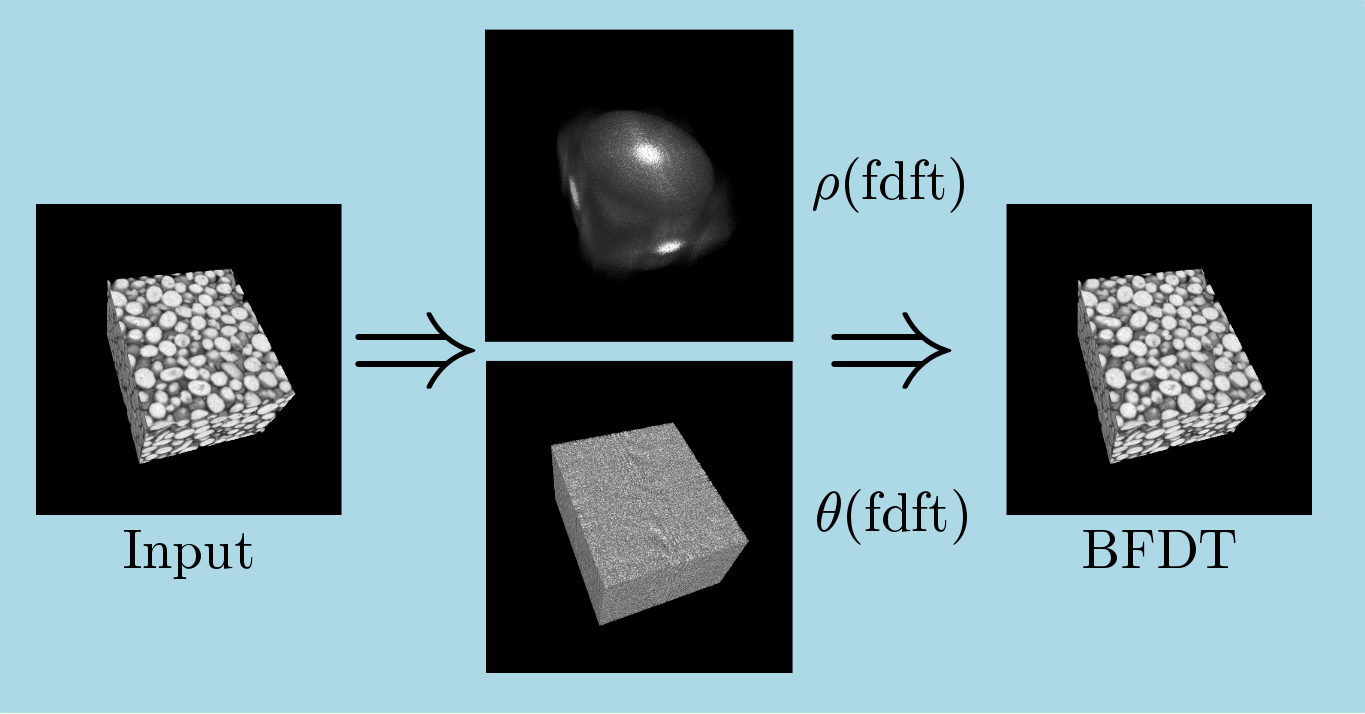 |
IPSDK 4.1.1.1
IPSDK : Image Processing Software Development Kit
|
| image = | backwardDiscreteFourierTransform3dImg (inDFTImg3d1,inDFTImg3d2) |
| image = | backwardDiscreteFourierTransform3dImg (inDFTImg3d1,inDFTImg3d2,inOptDFTConfig) |
Backward Discrete Fourier Transform for an input 3d image.
This algorithm allows to compute the real part of Backward Discrete Fourier Transformation of an input complex 3d image reprensented by its two components  and
and  .
.
In three dimensions, the real part of Backward Discrete Fourier Transformation (BDFT) of input images  and
and  with size
with size  is defined as the following real image:
is defined as the following real image:
![\[ bdft(x, y, z) = Re \left\{ \sum_{j=0}^{S_z}{\sum_{k=0}^{S_y}{\sum_{l=0}^{S_x}{InDFTImg3d(l, k, j)\exp^{+2\pi i \left (\frac{xl}{S_x}+\frac{yk}{S_y}+\frac{zj}{S_z} \right )}}}} \right\} \]](form_845.png)
This transformation allows to retrieve forward domain and can be usefull for example in case of filtering of Fourier Frequencies. The following image is an illustration of Backward Discrete Fourier Transformation results:

As in case of Forward Discrete Fourier Transform (see Forward Discrete Fourier Transform 3d),  parameter allows to setup:
parameter allows to setup:
 :
:
![\[ bdft(x, y, z) = \lambda Re \left (\sum_{j=0}^{S_z}{\sum_{k=0}^{S_y}{\sum_{l=0}^{S_x}{InDFTImg3d(l, k, j)\exp^{+2\pi i \left (\frac{xl}{S_x}+\frac{yk}{S_y}+\frac{zj}{S_z} \right )}}}}\right ) \]](form_846.png)
 along x axis,
along x axis,  along y axis and
along y axis and  along z axis.
along z axis. along x axis
along x axis  along y axis and
along y axis and  along z axis.
along z axis.